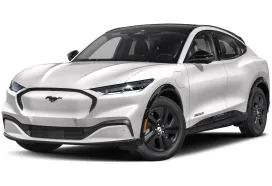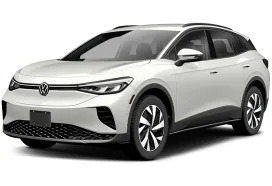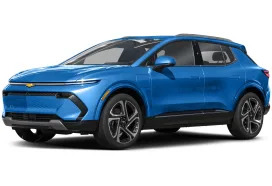Ford reported strong earnings and an upbeat 2024 profit outlook earlier this week and said the company will keep spending more on its EV transformation. But it's the details of this last strategy shift that have investors most excited.
"We think there has been a seismic change in the past six months,” Ford CEO Jim Farley said on the conference call regarding the EV market in the U.S., in which “EV manufacturers [are] cutting their price by 20% across all major geographies, and a tremendous amount of capital is flowing and a ton of new capacity into one single segment — two-row crossovers.”
Ford’s rethink of the EV market is still to invest, and somewhat heavily, it seems, into its Model e business unit but focus more on its Gen 2 EVs, which will bypass that “two-row crossover market” dominated by Tesla and other manufacturers. Farley said Ford will push into larger EVs like trucks and also try to capitalize on the new space.
“We're going to focus those large EVs on geographies and product segments where we have a dominant advantage like trucks and vans,” Farley said, then revealing that Ford is also “adjusting our capital, switching more focus on to smaller EV products.”
This means Farley and Ford essentially are abandoning that middle market for EVs.
The pivot to smaller EVs is a new wrinkle for Ford, which had pulled out of the entry-level sedan/compact market for its gas-powered cars in recent years, focusing its EV efforts on upmarket products like the Mustang Mach-E crossover and full-size Lightning pickup.
Farley revealed more of Ford’s small EV plans, claiming they had been in the works for some time. Over the past two years, Ford has had a hidden startup, or "skunk works" team, working internally on making a low-cost EV platform, he said.
This was music to the ears of Morgan Stanley’s Adam Jonas. The analyst has criticized Ford for using its profitable Ford Pro commercial business, which he dubbed Ford’s “Ferrari,” to subsidize its “EV science project.”
“What matters for the Dearborn re-rating story? More efficient build-partner-buy decisions on Model e, where we see scope for Ford to leverage its strong relationships with Chinese EV partners who we think can give them the best chance,” Jonas wrote on Wednesday morning.
Farley didn’t say whether the Ford team would collaborate with its Chinese partners, only that they were a threat to the business. “All of our EV teams are ruthlessly focused on cost and efficiency in our EV products because the ultimate competition is going to be the affordable Tesla and the Chinese OEMs,” Farley said, adding that Ford’s “next Gen 2 products will be profitable in the first 12 months of their launch.”
Barclays analyst Dan Levy also liked Ford’s change in EV spending.
“While the EV transition remains central for Ford, commentary on the call indicated some pivot on EV strategy for Ford — reflecting the broader market challenges in EV demand. Overall, Ford is pushing to be more mindful of capital requirements and vehicle economics,” Levy wrote.
The pivot to making a smaller EV poses a risk, however, Levy noted. “While there is a white space for this offering, this is a sharp contrast from Ford’s efforts to electrify with its leading franchises, and begging the question of what type of economics Ford could ultimately achieve with such a vehicle,” he said.
From a competition point of view, Tesla is the only Western-based automaker that makes EVs with a healthy profit margin. The thinking goes that Tesla is likely the only automaker (aside from Chinese rivals like BYD) that can make a cheap EV affordable. At least that’s the goal for Tesla and its upcoming $25,000 EV.
Whether Ford can accomplish its pivot — abandoning the middle market for EVs and going high-end with trucks and low-end with small EVs — is the risk investors in the long-term are making with Ford. But as Ford indicated, for the near term at least, the auto business will be strong based on the performance of its traditional gas-powered business and Ford Pro’s continued growth — now its most profitable business with $1.8 billion in EBIT last quarter alone.
Count Barclay’s Levy in the group that is happy to see Ford soldier on with its ICE (internal combustion engine) business, while the EV world sorts itself out.
“While we believe an overhang remains on the EV transition for Ford and other legacy automakers, we nevertheless appreciate the near-term benefits of stronger ICE earnings,” Levy said.
For Ford and Farley, hopefully the profits from the ICE and Pro businesses can keep funding an EV transformation that’s seemingly evolving in real time.
Pras Subramanian is a reporter for Yahoo Finance. You can follow him on Twitter and on Instagram.
Click here for the latest stock market news and in-depth analysis, including events that move stocks
Read the latest financial and business news from Yahoo Finance




Sign in to post
Please sign in to leave a comment.
Continue